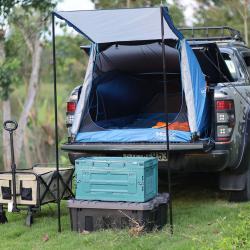How to Choose the Best Car for Road Trips
Embarking on a road trip is synonymous with adventure, exploration, and the open road. Whether you’re planning a cross-country expedition or a weekend getaway, choosing the right car is crucial to ensuring a comfortable and enjoyable journey. With countless options available, selecting the perfect road trip vehicle can be overwhelming. This guide will help you navigate important considerations, ensuring your road trip is smooth, safe, and memorable.
- Assess Your Needs
Before diving into specific models, consider your road trip requirements:
- Passenger Capacity: Determine how many people will be traveling with you. A family of five will need more seating than a solo traveler or couple.
- Luggage Space: Evaluate the amount of cargo space you need. Consider whether you'll bring along camping gear, bicycles, or other bulky items.
- Terrain and Weather: Think about the type of terrain you’ll encounter and the weather conditions. Will you be cruising down highways or venturing onto rugged trails?
- Prioritize Comfort
Comfort is paramount on long journeys. Look for features such as:
- Seating: Opt for adjustable, ergonomic seats with ample legroom. Heated or ventilated seats can add extra comfort in extreme climates.
- Ride Quality: A car with a smooth suspension system can make a significant difference in ride comfort, especially on bumpy roads.
- Noise Insulation: A quiet cabin reduces fatigue and enhances the overall travel experience.
- Consider Fuel Efficiency
Fuel costs can add up quickly on long trips. Choose a vehicle with good fuel efficiency to save money and reduce your environmental impact. Hybrid or electric vehicles are increasingly popular for their efficiency and eco-friendliness.
- Evaluate Safety Features
Safety should never be compromised. Look for:
- Advanced Driver Assistance Systems (ADAS): Features like adaptive cruise control, lane-keeping assist, and blind-spot monitoring can reduce the risk of accidents.
- Crash Test Ratings: Check ratings from reputable organizations like the National Highway Traffic Safety Administration (NHTSA) or the Insurance Institute for Highway Safety (IIHS).
- Storage and Accessibility
A practical road trip car should have:
- Flexible Storage: Look for vehicles with adaptable cargo space, such as foldable rear seats or roof racks for extra storage.
- Ease of Access: Ensure the car’s design allows easy access to the trunk and passenger areas. Sliding doors or power tailgates can be advantageous.
- Entertainment and Connectivity
Long hours on the road require entertainment options:
- Infotainment System: A user-friendly system with navigation, Bluetooth connectivity, and smartphone integration (Apple CarPlay or Android Auto) can make journeys more enjoyable.
- Sound System: A quality sound system can enhance the driving experience, especially when paired with a vast music library or podcasts.
- Budget and Reliability
Finally, consider your budget and the vehicle’s reliability:
- Purchase and Maintenance Costs: Factor in the purchase price, insurance, and expected maintenance expenses.
- Reliability Ratings: Research the car’s reliability through consumer reports and owner reviews to avoid unexpected breakdowns.
Conclusion
Choosing the best car for your road trip involves balancing comfort, efficiency, safety, and budget considerations. By assessing your specific needs and prioritizing what matters most to you, you can find a vehicle that transforms your journey into a memorable adventure. Remember, the right car is not just a mode of transportation—it’s your travel companion on the open road. Safe travels!






















